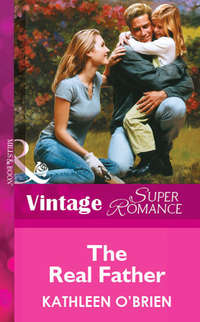
Полная версия
Christmas in Hawthorn Bay
“We met Colin Trenwith in Cornwall,” Nora said. “I think it was love at first sight for Maggie.”
Finally, Ethan looked up. Nora knew he’d always thought Colin might be the name of the baby’s father.
She smiled. “Or at least we met his ghost,” she added. “Maggie found his tombstone. He was a pirate who died in the 1700s. I think she fell in love with that name, right from the start.”
Ethan blinked behind his glasses, then returned to his work.
Nora tried not to see what he was doing. Instead she pictured Maggie, kneeling in front of the tilted tombstone in that half-forgotten cemetery overlooking the Atlantic.
“Nora, listen,” she’d called out excitedly. “Colin Trenwith, 1756–1775. Once a Pirate, Twice a Father, Now at Rest with his Lord.” She’d run her fingers over the carving. “Isn’t that the most poetic epitaph you’ve ever heard?”
Maggie hadn’t been able to tear herself away. She’d begged Nora to linger another week in Cornwall, and then another. They’d changed their tickets, and, cloaked and hooded against the wind, they’d hiked every day to the graveyard.
While Nora read, Maggie used Colin’s stone as a backrest and invented romantic stories about the boy who had packed so much life into his nineteen short years.
It was there, in that cemetery, that Nora had realized her parents were right—a new perspective had been just what she needed. Jack Killian had hurt her, yes, but her heartache was neither as immense as the Atlantic beside these ancient tombstones, nor as permanent as the deaths recorded on them.
And it was there, in that cemetery, breaking off impulsively in the middle of a tragic tale, that Maggie had first confessed her secret.
She was pregnant.
She was going to name her son Colin.
And she was never going home to Hawthorn Bay again.
So far, she hadn’t. Though they’d left England, having run out of money, they hadn’t gone home. They’d taken a bus from New York’s airport to small-town Maine and found menial jobs here, so that Maggie could have her baby in secret. Nora had called her parents, to let them know they were all right, though for Maggie’s sake she couldn’t tell them exactly where they were.
Maggie hadn’t called her family at all.
“We have to get back to the mainland,” Ethan interrupted tersely. “Right away. We have to get her back on the boat.”
Maggie cried out and her body jackknifed, as if someone had stabbed her from the inside.
“No,” she said, her voice tortured. “No. Do it here. The baby’s coming, Ethan. It’s too late to go back.”
Nora balanced herself with one hand on the wet sand. “Is it true? Is the baby coming?”
He nodded. “She’s already seven centimeters.” He gazed down at Maggie. “You must have been having contractions all morning, you little fool.”
Maggie shifted her head on the beach towel, grimacing. “Just twinges. Braxton-Hicks, I thought.”
Nora knew what that meant. When she’d agreed to stay in Maine with Maggie until the baby was born, she’d agreed to be her labor coach. Braxton-Hicks. False labour. Not uncommon in the weeks prior to delivery.
Maggie looked at Nora, as if she needed absolution for the sin of such dangerous foolishness. “Honestly, I didn’t think— Everyone says it takes so long the first time—”
“Well, it’s not going to take long for you.” Ethan sounded tense. “We have to get you back on the boat. Even if the baby is born there, we have to do it.”
Nora twitched her brows together, silently asking the question. Why? Why did they have to take such a risk? Surely it was safer here, where they at least had solid ground under their feet. Why go?
For answer, Ethan simply held up his hand. It was covered in blood, from fingertip to wrist, like a red rubber glove.
Nora felt the beach tilt. She thought for a minute she might pass out. It wasn’t just the baby coming early, then. Maggie was in real trouble. She was losing too much blood.
Maggie must have seen Ethan’s hand, too, though they both thought her eyes had been closed. Her whole body clenched, and then once again she reached for Nora’s fingers.
“Nora. Listen to me. If anything happens, I want you to take the baby.”
Nora pulled back instinctively, as if the words had burned her. Her heart was beating triple time, and her flesh felt cold.
“Don’t talk like that, Megs,” she said. She forced a teasing note into her voice. “It’s absurd. I know you love melodrama, but this isn’t the time. You need to focus on your breathing.”
“Not yet.” Maggie’s gaze bore into hers. “If it’s absurd, we’ll all have a good laugh about it later. But just in case. I want you to promise me that you’ll take the baby.”
Ethan was wrapping the towels around her. He must have done something that hurt. Maggie cried out, and her legs stiffened.
“I’m sorry,” he whispered. Nora saw a bead of sweat make its way down his hairline and mingle with a smear of blood on his cheek.
“Promise me, Nora.”
“Okay,” Nora said as she began to shiver. “Okay, Maggie, I promise. Now please. Focus.”
“And you must never let my parents know. About Colin. They can’t have him. My father—”
Maggie bent over again, making a sound like a small animal.
Ethan cleared his throat. “Nora, you have to help me carry her.”
When had Ethan stood up? Nora felt confused. This was a nightmare, where things happened in confusing, nonsequential jerks. But she had her part to play in the nightmare, too, so she struggled to her feet, though she no could longer feel them or trust that they were rigid enough to carry her own weight, let alone a bleeding woman and an unborn baby.
Maggie was so light, though, frighteningly light, as if part of her had bled away into the beach. They tried not to jostle her, but once or twice she seemed to pass out, then come back to consciousness with a groan.
Ethan cradled her in his arms while Nora made a pallet out of blood-soaked beach towels on the floor of the cockpit. As they placed her on it, Maggie seemed to rally a little. With one hand that, though it shook, seemed surprisingly strong, she pulled off the chain that held the mysterious gold ring.
She held it out to Nora.
“For you,” she said. Her voice seemed slurred. “For Colin.”
Nora took it, and her first tear fell.
Colin Trenwith.
Once a pirate, twice a father, now at rest with his Lord.
While Ethan towed the boat out to deeper water, Nora chanted the epitaph silently, over and over, like a prayer.
And then, with the words still circling through her mind, like a slender chain wrapping its fractured pieces together, Nora watched Ethan climb into the little boat, and the three of them set sail for home.
CHAPTER TWO
Eleven years later
MOTHERHOOD, NORA CARSON decided as she retreated to the kitchen, leaving her eleven-year-old son pouting in the living room, was not for the faint of heart.
Nora had three jobs—mayor of Hawthorn Bay, co-owner of Heron Hill Preserves and mom to Colin Trenwith Carson.
Of the three, being Colin’s mom was by far the toughest.
At least it was this week. Last week, when the Hawthorn Bay City Council had been sued by a recently fired male secretary claiming sexual discrimination, mayor had been at the top of Nora’s tough list.
Luckily, Nora had kept some of the secretary’s letters, all of which began Deer Sir. She produced them at her deposition, explaining that she didn’t give a hoot whether their secretaries were male, female or Martian, as long as they could spell.
The lawyers withdrew the suit the next day.
Now if only she could make this problem with Colin go away as easily. But she had a sinking feeling that it was going to prove much thornier.
She put the blackberries and pectin on to boil—she had orders piled up through next Easter, so she couldn’t afford a full day off. She read the letter from Colin’s teacher while she stirred.
Cheating.
Fighting.
Completely unrepentant.
These weren’t words she ordinarily heard in connection with Colin. He wasn’t perfect, not by a long shot. He was a mischievous rascal and too smart for his own good. But he wasn’t bad.
This time, though—
“Nora, thank heaven you’re home!” Stacy Holtsinger knocked on the back door and opened it at the same time. She was practically family, after eight years as business partner and best friend, and she didn’t bother with ceremony much anymore.
Nora folded the letter and slid it into the pocket of the World’s Greatest Mom apron Colin had given her for her birthday. “Where else would I be, with all these orders to fill? Out dancing?”
Stacy, a tall brunette with a chunky pair of tortoiseshell glasses that she alternately used as a headband, a pointer or a chew toy, but never as glasses, went straight to the refrigerator and got herself a bottled water. She wanted to lose ten pounds by Christmas and was convinced she could flood them out on a tidal wave of H2O.
Nora thought privately that Stacy would look emaciated if she lost any more weight, but the water sure did give her olive skin a gorgeous glow. She wondered if Stacy had her eye on a new man. She hoped so.
“Well,” Stacy said, raking her glasses back through her hair as she slipped onto a stool, “you could be down at city hall, I guess, trying to knock sense into those Neanderthals. Which would be disastrous right now, because I need you to make an executive decision about the new labels.”
Nora groaned as she added the sugar to the blackberries. Her mind was already packed to popping with decisions to make. What to do about the latest city-council idiocy—trying to claim eminent domain over Sweet Tides, the old Killian estate by the water? What to do about that crack in her living-room wall, which might be the foundation settling, something she could not afford to fix right now?
And, hanging over everything, like a big fat thundercloud—what to do about Colin?
“Labels are your side of the business.” The berries were just about ready. Nora pulled out the tablespoon she’d kept waiting in a glass of cold water, and dropped a dollop of the jam on it. Rats. Not quite thick enough.
“Come on, Nora. Please?”
Nora looked over her shoulder. “Stacy, do I consult you about whether to buy Cherokee or Brazos? What to do if the jam’s too runny? No. I make the product, you figure out how to sell it, remember?”
“Yeah, but—” Stacy held up a proof sheet. “This is a really big change. And I drew the artwork myself. I’m sorry. I’m weak. I need reassurance.”
Nora put the spoon down. It was probably true. Stacy was one of the most attractive and capable women Nora knew, but her self-esteem had flat-lined about five years ago when her husband had left her, hypnotized by the dirigible-shaped breasts of their twenty-year-old housekeeper.
Zach was a fool—although rumor had it he was a happy fool, having discovered that The Dirigible was into threesomes with her best friend, whom Stacy had dubbed The Hindenburg.
“Okay.” Nora wiped her hands. “Show me.”
Nora would have said she loved it no matter what, but luckily the new label was gorgeous. Done in an appropriate palette of plums, purples, roses and blues—all the best berry colors—it showed a young beauty on a tree swing, with a house in the background that was the home of everyone’s fantasies—wide, sunny porch, rose-twined columns and lace curtains fluttering at cheerful windows.
Everyone wished they’d grown up in that house.
But Nora really had.
She looked up at Stacy. “You used the real Heron Hill?”
The other woman nodded. “You don’t mind, do you? I changed it a little, so that no one could sue or anything. But it is the ultimate dream house, don’t you think? It was our business name before you sold the house, and we’ve worked that out legally with the new owners, so—” She broke off, fidgeting with her glasses. “I mean…you really don’t mind, do you?”
“Of course not.” Nora smiled. She’d been born at Heron Hill. And Colin had spent his first few years there. It had indeed been the dream house. But when her father had died, and Nora discovered that the Carson fortune was somewhat overrated, she and her mother had decided to sell it.
Heron Hill was now a very popular local bed-and-breakfast. Nora’s mother had moved to Florida last year, so she didn’t have to pine over the loss. It stung Nora, though, sometimes, when she passed it and spotted a stranger standing at the window of her old bedroom. But whenever that happened, she just reminded herself of the big fat trust fund they’d set up for Colin with the proceeds from the house, and she’d walk on by, with her chin up and no regret.
“The label is gorgeous,” she said. “It will sell so well I won’t be able to keep up with the demand.”
“Great. I’ll tell the printers today.” Stacy tucked the proof back into its protective folder and gazed happily up at Nora. “Now, can I return the favor? I haven’t a clue whether Cherokee or Brazos blackberries taste better, but I do have a breakdown of their sales figures for the past three years, which might—”
Nora laughed. “No, no, I’ve got that part covered. But I—I could use some advice about Colin. He’s gotten himself into some trouble, and I’m not sure how to handle it.”
Stacy raised one eyebrow. “Colin’s in trouble? Trouble he can’t charm his way out of? I didn’t know there was such a thing.”
Nora knew that wasn’t just empty flattery. With his curly black hair, big blue eyes and dimpled smile, Colin was already so handsome and winning that most adults couldn’t stay mad, no matter what he did. He’d get caught right in the act of something devilish, like the time he’d learned the signs for several off-color words and had the class rolling out of their seats with laughter while his poor teacher tried to figure out what the joke was. Or the time he and a few friends had fiddled with the school’s front marquee and changed the phrase We Love Our Students to We Love Our Stud Nest.
Both times, Colin had apologized so humbly—even, in a nice touch, using the sign for ashamed—that the principal had ended up praising his honesty instead of kicking him out of class.
“I know, but this time it’s different,” Nora said. The jam was ready, and she began to pour it into the sterilized jars she had lined up on the central island. This little house, which she’d bought after selling Heron Hill, wasn’t much to look at, but it had a fantastic kitchen.
“Different how?”
Nora sighed. “They say he and Mickey Dickson cheated on their math test.”
Stacy raised her brows. “What? He hates Mickey Dickson. Heck, I hate Mickey Dickson. Sorry, I know he’s some kind of cousin of yours, but the kid is a brat. And an idiot. I take it Mickey cheated off Colin’s paper, not vice versa?”
“Yes, but Colin let him. He said he knew Mickey had been doing it for months, so this time he made it easy…and he deliberately answered all the questions wrong, so that Mickey would get caught. He said he didn’t mind going down, as long as he brought Mickey down with him.”
“Yikes.” Stacy shook her head. “That’s gutsy. Dumb, but gutsy.”
“Yeah, and that’s not all. After school he and Mickey had a fistfight on the softball field. Tom called about an hour ago. He and Mickey just got back from the emergency room. They thought his nose might be broken, but apparently not, thank God.”
Stacy twirled her glasses thoughtfully and let out a low whistle. “Wow. It does sound as if Colin has slipped off the leash. What are you going to do?”
“I have no idea. He starts his Christmas break soon, which is both good and bad. Good, because he won’t have to see Mickey, but bad because he’ll have way too much spare time. Colin and ‘free time’ are a recipe for disaster.”
“Maybe you can get him to help you with the jams.”
Nora laughed as she screwed the lid onto the first of the filled jars. “No way. He’s a bull in a china shop. Last time he helped, he broke a gross of jars and ate more berries than he canned. We’d be out of business by New Year’s.”
Stacy laughed, too, but she kept twirling her glasses, which meant she took the problem seriously.
“Besides,” Nora went on. “Hanging out here with me is too easy. We’d have fun. I want to give him some chore that really hurts. Something he’ll hate so much he won’t even think about getting in trouble again.”
Stacy scrunched up her brow, thinking hard. “Man, I don’t know. What did your parents do when you got in trouble?”
Nora tilted her head and cocked one side of her mouth up wryly.
“Oh, that’s right,” Stacy said, laughing. “I forgot you were the reigning Miss Perfect for a couple of decades there.”
“Miss Boring is more like it.” Nora began wiping down the countertop, though she hadn’t spilled much. “My friend Maggie used to say that if she weren’t around to keep things stirred up I would probably turn to stone.”
“I wish I could have met her,” Stacy said. “You always make her sound like a human stick of dynamite. I’ll bet she’d know how to handle Colin.”
Nora’s eyes stung suddenly. She turned around so that Stacy couldn’t read her face too easily. “Yes,” she agreed. “She probably would.”
“Well, okay, let’s think. I wasn’t exactly dynamite, but I wasn’t Miss Perfect, either. I remember one summer, when I was about sixteen, and I’d just met Zach. I stayed out until dawn. I thought my dad was going to kill Zach, but my mom held him back. They made me spend the rest of my summer volunteering every night at the local nursing home.”
“Oh, yeah? How did that go?”
“It was hell. I wanted to be wrapped in Zach’s manly arms, and instead I was reading the sports section to an old guy who hacked up phlegm into his plastic cup every few sentences and kept yelling, ‘Nothin’ but net!’ every time I mentioned the Gamecocks.”
Nora laughed.
“It’s not funny,” Stacy said, though there was a twinkle in her eye. “It could have scarred me for life. To this day, whenever I see a basketball, I twitch.”
“Okay, then, I won’t send Colin to the nursing home just yet. I’ll reserve that for the day he comes home at dawn smelling of Chanel.”
She looked toward the living room, which was suspiciously quiet. “Right now he’s in there stuffing candy canes into the goody bags for the Christmas party. Even that little punishment annoyed him. He seemed to think nearly breaking Mickey’s nose was a gift to mankind, something to be applauded.”
“In there?” Stacy pointed with her tortoiseshell glasses. “Sorry, but I don’t think so. I’m pretty sure I saw him climbing the tree when I came in.”
Nora frowned, then, without stopping to say a word, reached for the latch. She yanked the door open and, pulling her sweater closed against the blast of December wind, took the steps down to ground level quickly.
Oh, good grief. Stacy was right. Colin wasn’t indoors, working through his punishment. He was about six feet up the leafless maple tree, hanging by his knees from a large, spreading branch. His sweater nearly smothered his face, leaving his skinny rib cage exposed and probably freezing.
Beneath him, his friend Brad Butterfield squatted in the middle of about two dozen scattered candy canes, some broken to bits inside their plastic wrappers. Both Brad and Colin were eating candy canes themselves, letting them dangle from their lips like red-striped cigarettes.
“Come on, Colin, you’re only hitting like thirty percent. Let me try. It’ll take us all day to do these damn bags at this rate.”
“Shut up, butt-head,” Colin said, his voice muffled under folds of wool. “You’re the boat, and I’m the bomber. That’s the deal. Now…target ready?”
With a heavy sigh of irritation, Brad began moving the paper bag slowly across the winter-brown grass. When he was directly under Colin’s head, a candy cane came sailing down. It fell squarely into the bag, and both Colin and Brad made triumphant booming sounds.
Stacy, who now stood at Nora’s shoulder, chuckled softly. “Well, what a coincidence,” she said. “Nothing but net.”
MOST PEOPLE IN HAWTHORN BAY said the Killian men had an unhealthy obsession with gold. A Civil War Killian ancestor supposedly buried his fortune in small caches all over the Sweet Tides acreage, and no Killian since had been able to drag himself away from the house, no matter how hard the community tried to run them off.
But Jack Killian, who hadn’t set foot in Hawthorn Bay for twelve years and therefore had a more objective perspective, didn’t think their problem was the gold.
It was the water.
Living in the South Carolina lowlands meant your feet weren’t ever quite dry. Thousands of acres of spartina marshland, endless blue miles of Atlantic coastline, haunted black swamps and twisting ribbons of tea-colored rivers—that was what Jack saw when he dreamed of home, not the antebellum columns and jasmine-scented porches of Sweet Tides.
And certainly not the gold.
Almost every major incident in his life was tied to the water. He’d been four the day they’d dragged his grandmother out of the river behind Sweet Tides, where she’d unsuccessfully tried to drown herself. He’d been nine the day he’d broken his fibula learning to water-ski behind their new boat—Killian luck never lasted long, and that boat had been sold, dime on the dollar, before the cast had come off Jack’s leg. He’d been sixteen the day his mother, lying on the floor in a pool of her own blood, had sent him to find his father, who’d been drinking malt liquor at a shanty on the edge of Big Mosquito Swamp. It was the first time Jack had driven a car alone.
And, of course, he had won Nora Carson on the water—the day they’d wandered away from a high school science trip to a loblolly pine hammock, and he’d kissed her beside a cluster of yellow water lilies.
He’d lost her on the water, too, the day he’d taken her filthy cousin Tom out to a deserted spoil island, beat the crap out of him and left him there to swim home on his own. He hadn’t realized that he’d broken Tom’s arm, rendering the jerk unable to swim an inch, but the cops had decided ignorance was no excuse.
Jack had escaped an attempted murder charge by the skin of his teeth, and by a timely enlistment in the United States Army.
He hadn’t been home since. Until today.
He drove his Jaguar around back, between the house and the river. In Jack’s lifetime, no one but the sheriff had ever entered Sweet Tides from the fancy front, where gray, peeling Doric columns guarded the portico like ghosts from a long-lost world.
Yeah, the front of Sweet Tides was pure Greek tragedy, but the back was merely pleasantly ragged, with mossy oaks, leggy camellias, crooked steps and weathered paint that all needed a lot more tending than they ever got.
Jack’s brother, Sean, stood at the back porch. When Jack killed his engine, Sean loped down the uneven steps, arms open, a huge grin on the face that looked so eerily like Jack’s own.
“You made it! I thought surely the minute you hit the marsh flats you’d break out in hives and make a U-turn back to Kansas City!”
Jack folded Sean in with one arm and ruffled his unkempt black curls with the other. They both still wore their hair a little longer than other men—it was Jack’s one rebellion against the establishment. But while Sean clearly still cut his own with the kitchen scissors, Jack paid a small fortune to someone named Ambrosia, who knew how to keep the uptown-edgy-lawyer look from revealing its roots as backwoods bad boy.
“I thought about it,” he admitted. “But curiosity got the better of me.”
Sean raised one eyebrow into a high, skeptical arch, a favorite Killian trick. “You managed to keep your curiosity under control for twelve long years.”
“Yeah, but this time you sweetened the pot. I couldn’t pass up the chance to thwart the evil plans of that lowlife Tom Dickson and his cronies.” Jack popped the trunk, exposing a suitcase and a garment bag. “Give me a hand with these, okay? I brought some extra suits, in case the bastard puts up a fight.”









